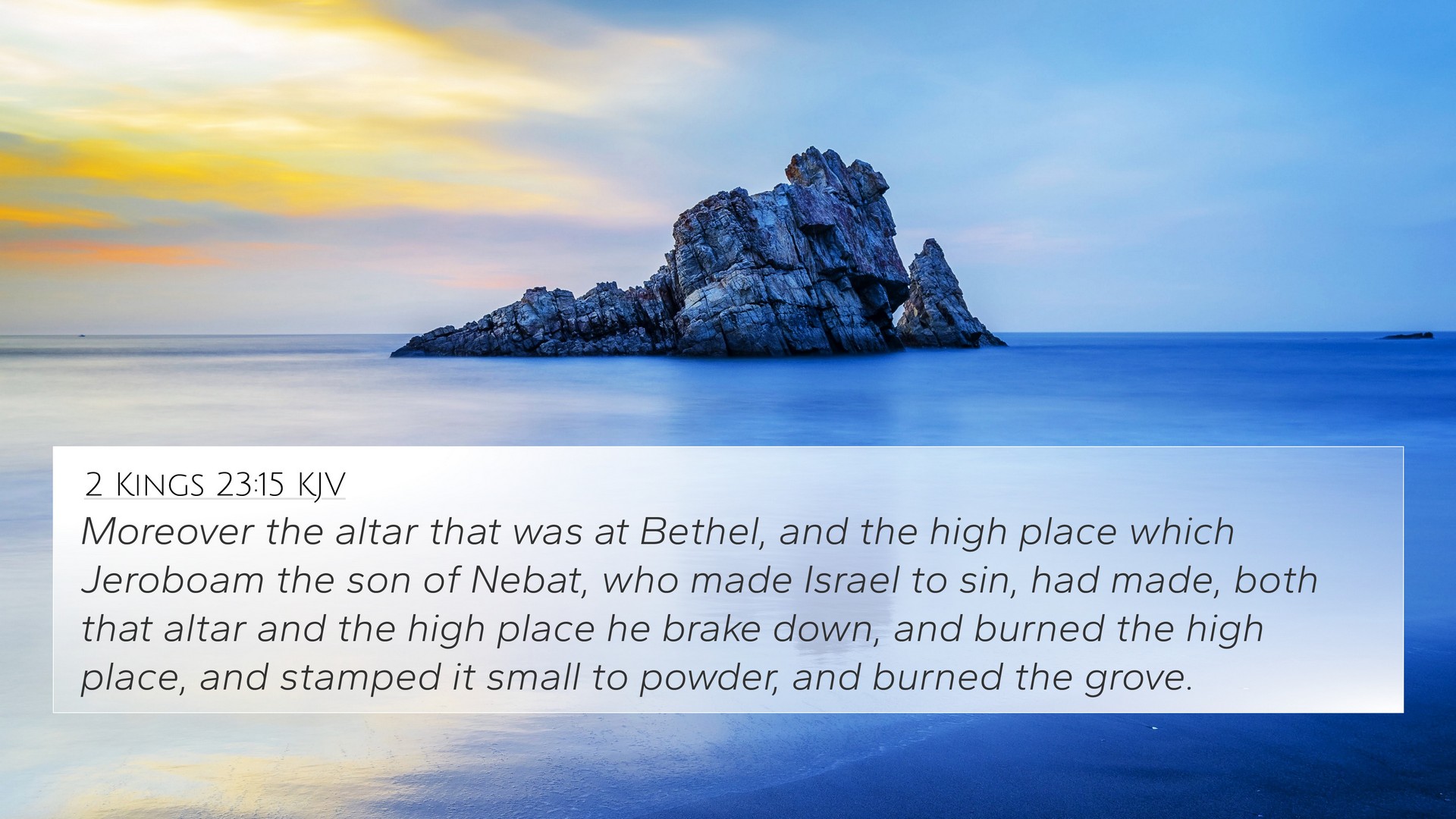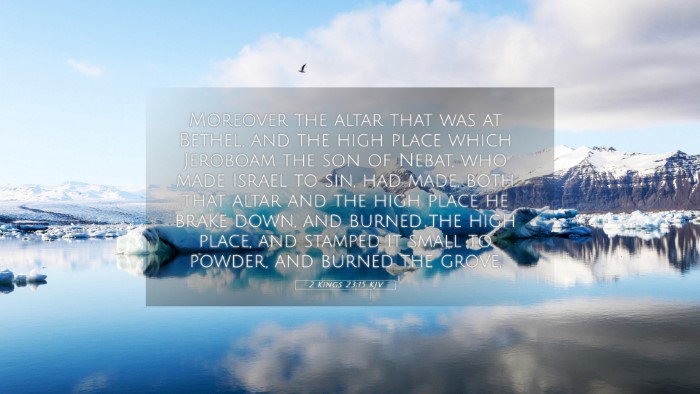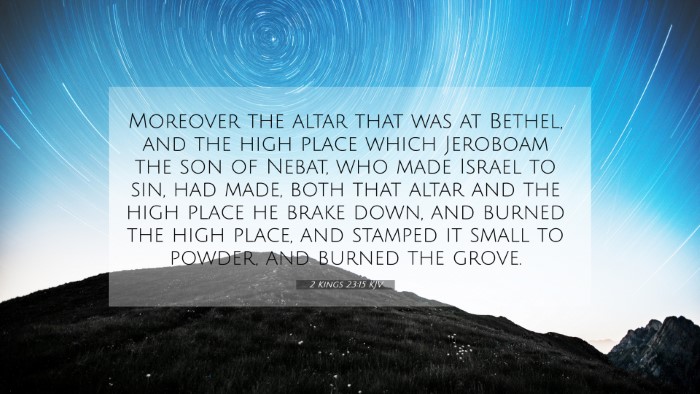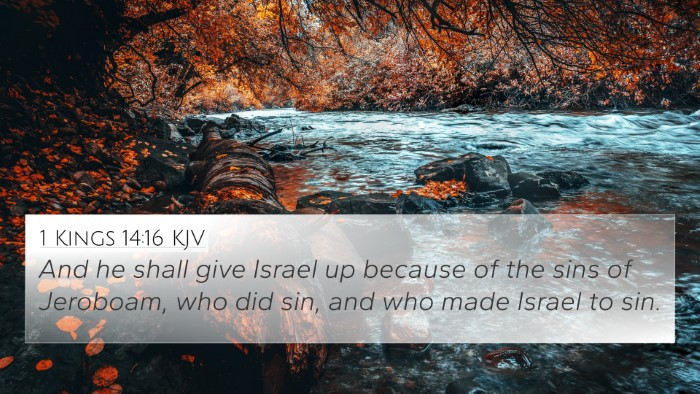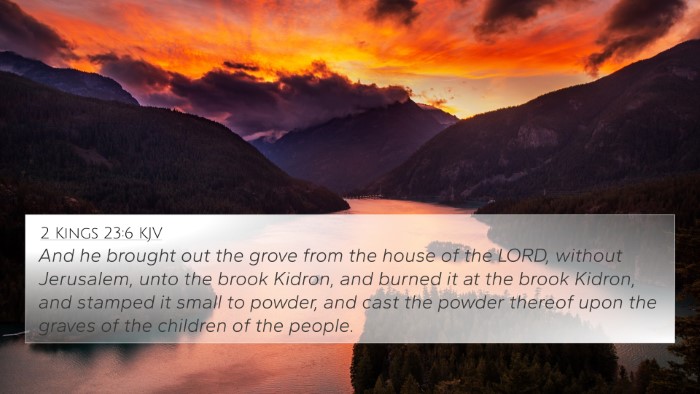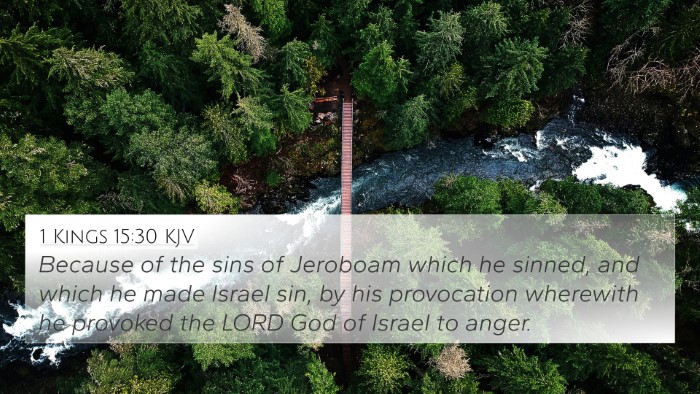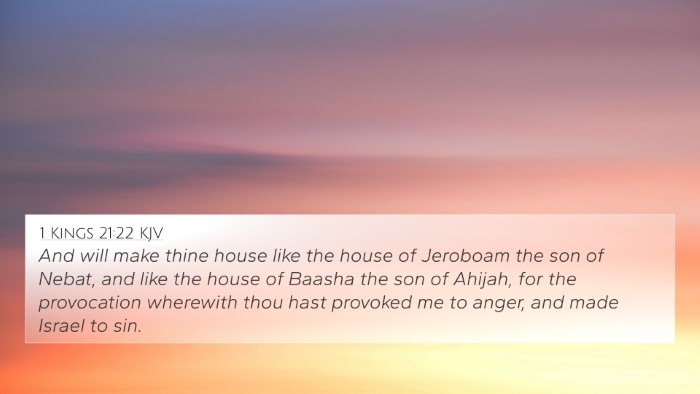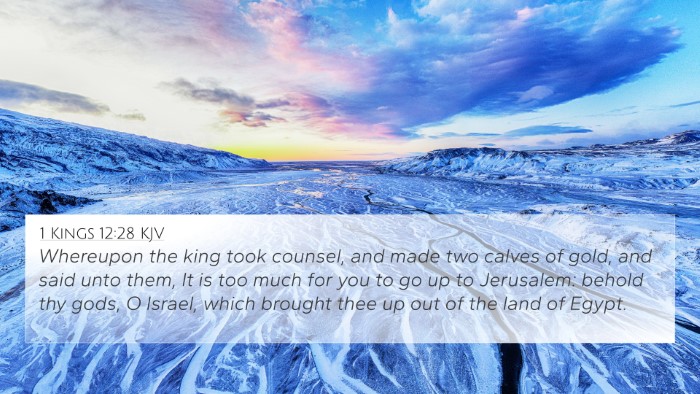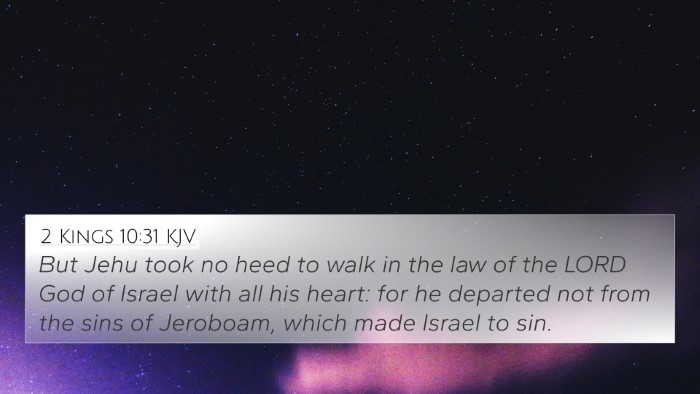Understanding 2 Kings 23:15
Verse: 2 Kings 23:15 - "Moreover, the altar that was at Bethel and the high place which Jeroboam the son of Nebat, who made Israel to sin, had made, even that altar, and the high place he brake down, and burned the high place, and stamped it small to powder, and burned the grove."
Summary of Meaning
This verse captures a pivotal moment in the religious reforms initiated by King Josiah of Judah. It highlights his commitment to abolishing idolatry and restoring true worship of Yahweh. The destruction of the altar at Bethel, a site of pagan worship instituted by Jeroboam, signifies a clear rejection of false worship and an attempt to return to the covenant relationship with God.
Verse Context and Significance
The context of this verse is crucial. King Josiah discovered the Book of the Law during temple renovations and was stirred to renew the covenant in Israel. His actions in 2 Kings 23:15 reflect a broader theme of reform and restoration throughout the Scriptures. By dismantling the altar at Bethel, a center of idolatry, Josiah was not only obeying God's commandments but also setting an example for the nation of Judah.
Commentary Insights
- Matthew Henry: Henry emphasizes the significance of Josiah’s reforms as a national return to God. He notes that the reference to Jeroboam underscores the origin of Israel’s sin and the necessity to confront historical wrongs.
- Albert Barnes: Barnes discusses the vital importance of Bethel as a religious site and argues that the destruction of the altar was an act of faith, illustrating Josiah's zeal for the Lord and a restoration of true religion in Israel.
- Adam Clarke: Clarke highlights the physical destruction of the altar as a metaphorical cleansing of sin. He elucidates the phrase "made Israel to sin," pointing out that Jeroboam’s idolatrous practices led the nation away from God, and Josiah's actions were a corrective step toward faithfulness.
Cross-References and Thematic Connections
To deepen our understanding of 2 Kings 23:15, it's useful to explore its connections with other Biblical passages:
- 1 Kings 12:28-30: This passage provides the context for Jeroboam's establishment of idolatrous worship in Israel, setting the stage for Josiah's later reforms.
- 2 Kings 23:4: Here, Josiah is seen removing the vessels dedicated to Baal, showcasing his dedication to eradicating idolatry.
- Deuteronomy 12:2-3: This scripture outlines God's command to destroy places of pagan worship, which Josiah is fulfilling by breaking down the altar.
- 2 Kings 23:20: The verse continues with Josiah's reforms, highlighting the fulfillment of his commitment to God's covenant and the purge of sin from Israel.
- Matthew 21:12: Jesus cleanses the temple, reflecting a similar zeal for God's holiness and an example for believers to follow in purging sin.
- Romans 12:2: The call to not be conformed to this world resonates with Josiah's actions, encouraging believers to reject worldly influences.
- Hebrews 12:1: The idea of laying aside every weight and sin parallels Josiah’s efforts to remove the idolatrous practices from Judah.
- 1 Corinthians 10:14: Paul encourages believers to flee from idolatry, echoing the themes of Josiah's reforms.
- 2 Chronicles 34:3-7: This passage provides additional details about Josiah's reforms and his heart to seek the Lord.
- Acts 19:19: The early Christians burned their magic books, reflecting the same kind of zeal for removing objects of false worship.
Application and Reflection
In reflecting upon 2 Kings 23:15, one could ask: What altars of idolatry might we need to break down in our lives today? Just as Josiah took decisive actions to restore proper worship, believers are called to evaluate the influences in their lives against the standard of God's Word.
Using Cross-References for Deeper Study
For those seeking to explore these themes further, a Bible concordance or Bible cross-reference guide can provide valuable insights into Scripture's interconnectedness. Tools for Bible cross-referencing enable a deeper understanding of Bible verses that relate to each other, enhancing overall comprehension of God’s message.
Conclusion
2 Kings 23:15 serves as a profound reminder of the call to holiness and the importance of removing sin from our lives. Through a comparative Bible verse analysis and inter-Biblical dialogue, we can better understand the ongoing themes of idolatry and divine loyalty in the Christian journey. Embracing the lessons from Josiah’s reign encourages believers to seek a pure heart and an unwavering commitment to God.
